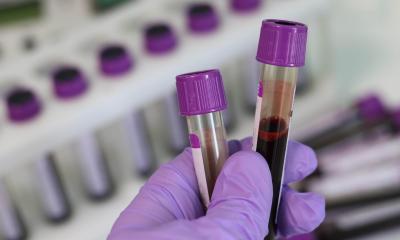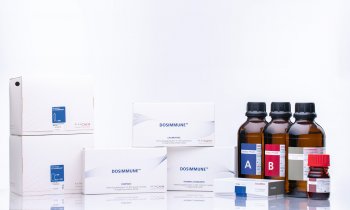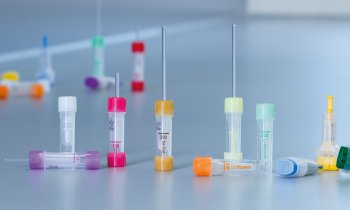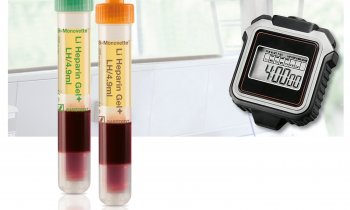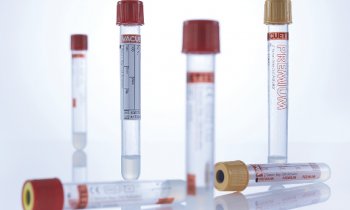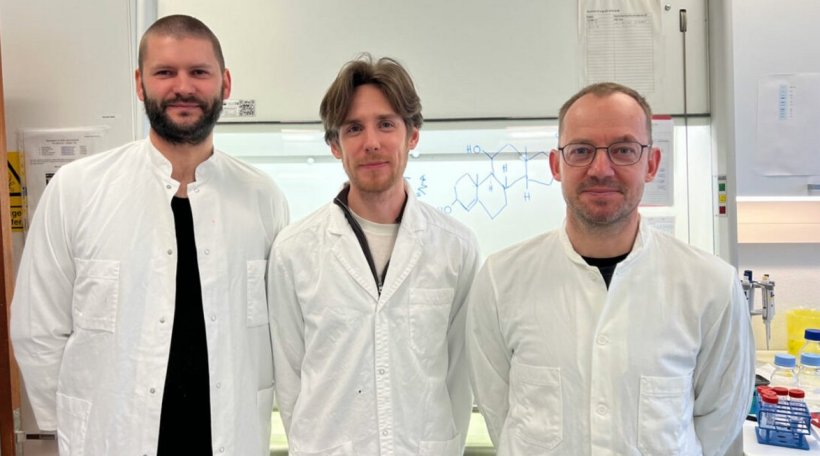
Image source: Aarhus Universitetshospital
News • Cortisol sampling from blood
Paving the way for better diagnosis and treatment of endocrine diseases
A new Danish study may be the first step towards much faster and more accurate diagnosis of a wide range of conditions that require regulation of the body's stress hormone: cortisol.
The researchers have discovered a groundbreaking method of measuring levels of free cortisol directly from a blood sample very simply and quickly with just a few drops of blood. This is in sharp contrast to the current practice, which is both demanding and imprecise.
Their results were published in the journal Analytical Chemistry.
"The current methods of measuring free cortisol from blood or saliva are very onerous and require processing of the sample. The most common method is therefore to collect urine over a few days instead. Unfortunately, collecting every drop of urine over several days requires great perseverance from patients. It can be almost impossible, even if the patients are hospitalised, and this is probably why we see up to 60% variation in the urine free cortisol measurements in the individual patient," explains Andreas Lodberg, MD and postdoc at the Department of Biomedicine, Aarhus University.
Being able to measure the total cortisol level accurately means we can potentially adapt treatment more precisely and reduce the risk of side effects
Andreas Lodberg
The new method addresses many of these challenges, as it uses a so-called cell-based assay. This not only improves the accuracy and reliability of cortisol measurements, but also evens out the high variation normally observed in patient samples. An assay is the analytical procedure used to measure the level of a substance – in this case cortisol. Currently, immunoassays using antibodies is the most common method, but the possibility of using the cell-based assay HEK293F-GRE opens completely new doors. This makes it possible to measure the total level of cortisol, including both natural free cortisol and synthetic cortisol from medicinal products.
The new approach has the potential to remove the limitations associated with current methods. Traditional tests, for example, cannot distinguish synthetic cortisol from natural cortisol, which is problematic in patients who have received treatment with synthetic cortisol. This can lead to misdiagnoses or incorrect dosage of medication. The cell-based test eliminates this problem by measuring the total hormone level. "Being able to measure the total cortisol level accurately means we can potentially adapt treatment more precisely and reduce the risk of side effects," explains Andreas Lodberg.
In this way, the test can be a game changer for diagnosing and treating patients who need cortisol regulation. This may be stress-related illnesses such as anxiety and depression, chronic illnesses such as diabetes and cancer, and inflammatory diseases such as allergies and asthma. Andreas Lodberg emphasises that there is still a need to explore how the method can best be integrated into clinical practice. The goal is to make the test available using a standard blood sample for doctors to improve patient care. "Our validation shows that this method meets the stringent criteria set by the U.S. Food and Drug Administration, making it a promising candidate for future use in clinical laboratories," says Andreas Lodberg.
Source: Aarhus University
04.03.2024



